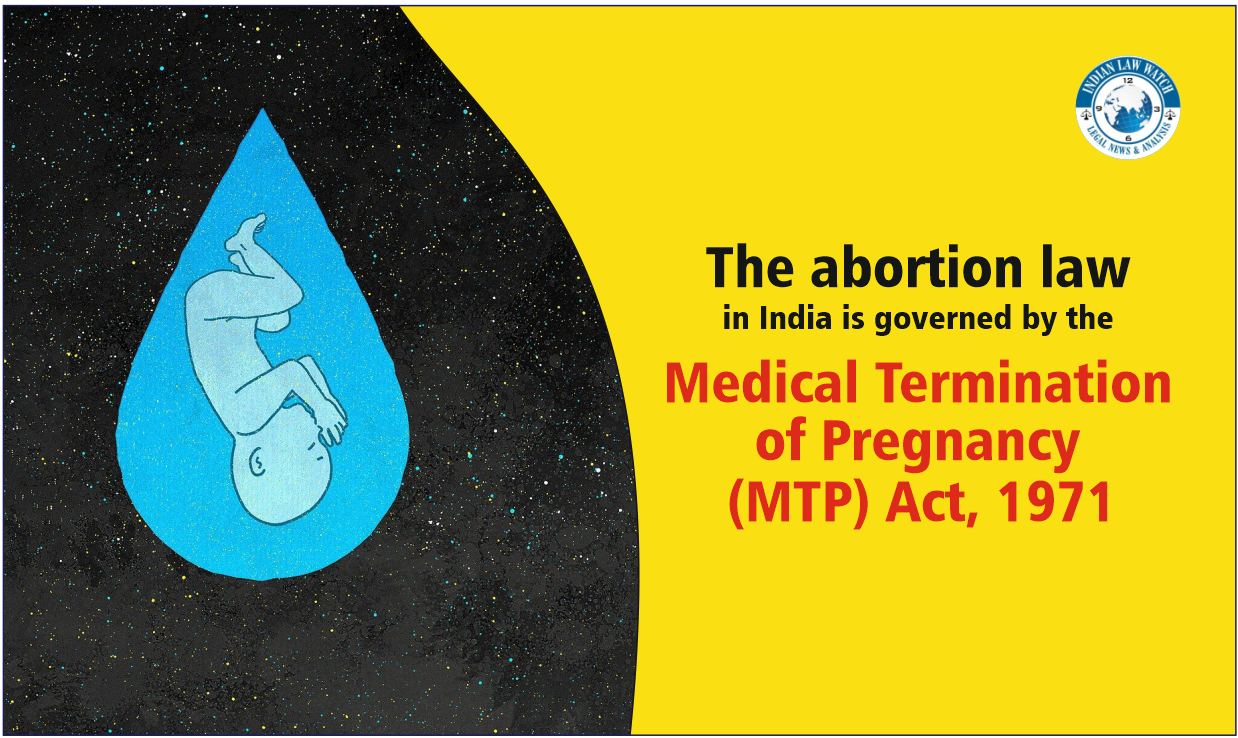

Recently, a 15-year-old girl who was pregnant by her brother was permitted by the Kerala High Court to end her pregnancy. The petition was submitted by the father of the young girl who was seven months pregnant.

The present petition was brought to the court by the father of a minor girl aged 15 years. The minor daughter of the petitioner got impregnated by the son of the petitioner and the daughter is 7 months pregnant. The Medical Board said the child’s social and mental health would be seriously harmed by the mother’s continued pregnancy.
The law points under discussion
The abortion law in India is governed by the Medical Termination of Pregnancy (MTP) Act, 1971, and its subsequent amendments. The Medical Termination of Prepregnancy (MTP) Act of 1971 authorised two stages of medical termination of pregnancy:
- Abortions up to 12 weeks after conception required only one doctor’s approval.
- For pregnancies between 12 and 20 weeks old, two medical opinions were required to decide whether continuing the pregnancy would put the mother’s life at risk or seriously harm her physical or mental health, or whether there was a significant chance that the child would be born with severe physical or mental abnormalities that would make it “handicapped.”
In 2021, Parliament changed the legislation to permit abortions for pregnancies up to 20 weeks based on the recommendation of one doctor.
For pregnancies that are 20 to 24 weeks along, the updated rule now requires the advice of two doctors.

A single bench of Justice Ziyad Rahman stated that because the kid is born from his own brother, different social and medical issues are likely to develop. In such a situation, the petitioner’s request for authorization to end the pregnancy is unavoidable.
Furthermore, the guidelines provide a list of seven categories of women who are eligible to seek an abortion according to section 3B of the regulations established under the Medical Termination of Pregnancy (MTP) Act. These categories apply specifically to pregnancies occurring between 20 and 24 weeks. The qualified individuals are as follows:
- Women who have experienced sexual assault, rape, or incest.
- Minors (underage women).
- Women who undergo a change in marital status during an ongoing pregnancy, such as becoming widowed or divorced.
- Women with significant physical disabilities, as defined by the criteria specified in the Rights of Persons with Disabilities Act of 2016.
- Women with mental illnesses, including those who are mentally retarded…
- Fetuses that have a high probability of severe malformation, rendering them incompatible with life, or resulting in significant physical or mental disabilities if they are born.
- Women whose pregnancies occur in humanitarian settings, disasters, or emergencies, as determined by the government.
List of judgments on the issue
There have been several landmark judgments in India that have significantly influenced the interpretation and application of abortion laws. Here are some notable judgments related to abortion law in India:
- Suchita Srivastava v. Chandigarh Administration (2009) 9 SCC 1: The Medical Termination of Pregnancy (MTP) Act, 1971 was confirmed as constitutionally lawful by the Supreme Court of India, which also acknowledged a woman’s freedom to choose her reproductive options.
- Nikhil Dattar v. Union of India SLP (C) 5334 of 2009: The Bombay High Court, in this case, clarified that the grounds for allowing abortion under the MTP Act include a risk to the woman’s physical or mental health, not just her life. The judgment broadened the interpretation of the law, ensuring that women have access to safe and legal abortions in various circumstances.
- Meera Santosh Pal v. Union of India (2017) 3 SCC 462: The Supreme Court of India, in this case, allowed the termination of pregnancy beyond the legal limit of 20 weeks. The court considered the medical reports indicating risks to the woman’s life and allowed the abortion, emphasizing the importance of protecting the woman’s health and well-being.
- v. Health and Family Welfare Department and Anr. 2022 Live Law (SC) 809: The Supreme Court of India ruled that “every pregnant woman has the intrinsic right to choose whether or not to have an abortion.” It acknowledged that abortion is a reproductive choice that is supported by fundamental principles including equality, the right to privacy, and the right to a life with dignity. The court determines that it is reasonable to interpret Rule 3B (a) of the MTP Rules to include marital rape as a kind of rape.
Similar matters before the courts
These are some notable cases where termination of pregnancies beyond 20 weeks has been allowed by the courts:
The Kerala High Court ruled that pregnancies longer than 20 weeks should be terminated for rape victims who were not mentally prepared to give birth in order to preserve their lives. Cases like ABC v. Union of India & Others: 2020(4) KLT 279 and Ms. X v. State of Kerala and Others: 2016 (4) KLT 745 illustrate this point.
The Supreme Court approved termination in the case of A v. Union of India: (2018) 4 SCC 75 where the gestational age was between 25 and 26 weeks.
In Murugan Nayakkar v. Union of India: 2017 SCC online SC 1092, the Supreme Court authorized the termination of a 13-year-old girl’s pregnancy.
In the case of Meera Santosh Pal v. Union of India (2017) 3 SCC 462, permission was granted for termination when the pregnancy had exceeded 24 weeks due to the medical reports indicating the associated risks.
Additionally, The Kerala High Court legalized abortion when the gestational age had beyond 23 weeks in the case of Neethu Narendran v. State of Kerala 2020 (3) KHC 157.

The matter will again be taken up by the court post after the week from the date of order i.e. 19th May, 2023 – where the court has sought information on the completion of the procedure.
International practice
The topic of abortion is highly complex and varies significantly from country to country. Different nations have diverse legal frameworks, cultural values, and religious beliefs that shape their perspectives on abortion. Here’s a brief overview of some international perspectives on abortion:
United States: Abortion laws in the United States have been a subject of significant debate and change over the years. The landmark Supreme Court case of Roe v. Wade in 1973 established the constitutional right to abortion, but subsequent court decisions and state-level regulations have imposed restrictions on access to abortion services.
Europe: European countries have varying laws and regulations regarding abortion. Some nations, like France and Germany, have more liberal abortion laws that permit early-term abortions and offer broader access to reproductive healthcare. However, there are countries with more restrictive laws, such as Ireland (although it has recently legalized abortion) and Poland, where access to abortion is limited.
Latin America: Abortion laws in Latin American countries are generally more restrictive. Some countries, like Chile and El Salvador, have stringent bans on abortion with limited or no exceptions, even in cases of rape, fetal abnormalities, or risks to the woman’s health. However, recent changes in Argentina and Mexico have expanded access to abortion under certain circumstances.
Canada: In Canada, abortion has been legal since 1988, and there are no specific laws restricting access to the procedure. It is considered a healthcare service and falls under the Canada Health Act, allowing for broad access to abortion services.
Ireland: Until 2018, Ireland had strict laws criminalizing abortion in almost all circumstances. However, following a referendum, the country legalized abortion, allowing for unrestricted access for up to 12 weeks and in cases where there is a risk to the woman’s life or serious harm to her health.





